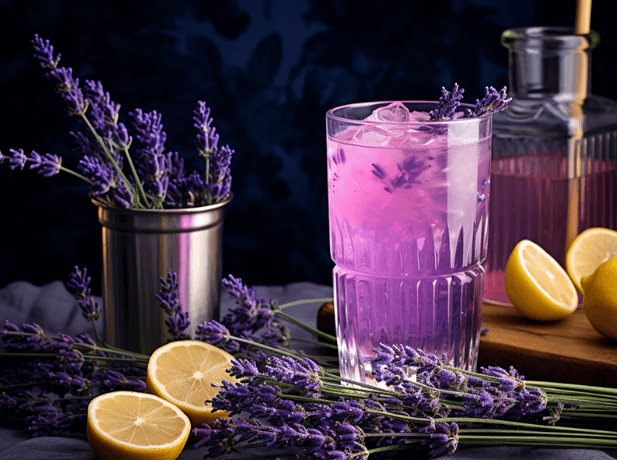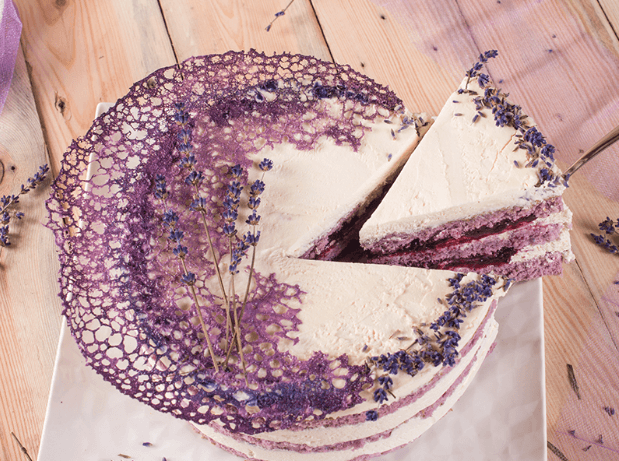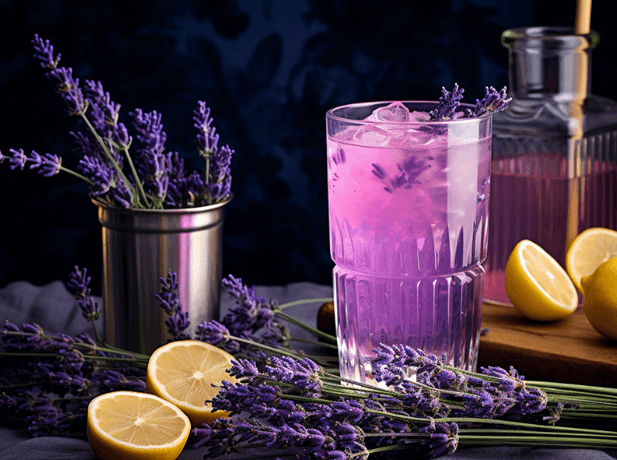Is Lavender Oil Edible? The Facts About Using It Safely

Key Takeaways:
- Understand the difference between culinary-grade and non-edible lavender oil.
- Discover the health benefits and potential risks of consuming lavender oil.
- Learn how to safely use lavender oil in your cooking and baking.
What Is Lavender Oil?
Lavender oil is extracted from the flowers of the lavender plant, scientifically known as Lavandula angustifolia, through a process of steam distillation.
This essential oil is renowned for its soothing scent and has been used for centuries in various forms, from medicinal treatments to beauty products. But not all lavender oil is created equal, and when it comes to edibility, the distinction is crucial.
The oil comes in different grades, and while some are suitable for topical application or aromatherapy, others are specifically distilled to be food-safe.
Culinary-Grade vs. Non-Edible Lavender Oil
When shopping for lavender oil, you'll encounter a range of products, each with its intended use. Culinary-grade lavender oil is explicitly labeled for use in food and drink.
This type of oil is carefully produced to ensure it's safe for consumption, often undergoing more rigorous testing and certification to meet food-grade requirements.
On the other hand, non-edible lavender oils are intended for external use only. These may contain synthetic additives or higher concentrations of compounds that are not safe to ingest.
Always check the label and consult with a professional if you're unsure about the edibility of a particular lavender oil product.
Health Benefits of Edible Lavender Oil

Lavender oil is not just a treat for the senses; it also offers a variety of health benefits. When used in moderation, culinary-grade lavender oil can help alleviate stress, promote relaxation, and even aid in digestion.
Studies have shown that the active compounds in lavender, such as linalool and linalyl acetate, contribute to these benefits. However, it's important to note that these studies often refer to the effects of lavender in general, and more research is needed to fully understand the impact of consuming lavender oil specifically.
Potential Risks and Precautions
While the benefits of lavender are well-documented, it's crucial to approach the consumption of lavender oil with caution.
The National Institutes of Health warns against consuming essential oils due to their concentrated nature, and ingesting too much can lead to adverse effects, including nausea, vomiting, and in severe cases, toxicity.
Always start with a small amount and consult with a healthcare provider, especially if you have pre-existing health conditions or are pregnant.
Importantly, ensure you're using culinary-grade lavender oil and not confusing it with similar products meant for external use. The latter can contain substances that are not meant to be consumed and can be harmful if ingested.
Essential Oil Blends: Not for Consumption
Essential oil blends often contain a mix of oils, including lavender, tea tree, and peppermint oil. While these blends may be beneficial for topical application or aromatherapy, ingesting them can be dangerous and should be avoided.
Lavender in Food: The Edible Form
While lavender essential oil is not recommended for consumption, the use of lavender in food is quite common. Culinary lavender oil can be used to add flavor to dishes and is safe for most people to eat in moderate amounts.

Culinary Uses of Lavender Oil
Lavender oil can be a delightful addition to your culinary repertoire, lending a floral, slightly sweet flavor to dishes. It pairs well with both sweet and savory recipes, from baked goods like shortbread cookies to roasted meats and salad dressings. The key is to use it sparingly, as its potent flavor can easily overwhelm a dish.
A drop or two of culinary-grade lavender oil can be infused into syrups, whipped into cream, or even added to marinades. Its versatility in the kitchen allows for creative experimentation, but always remember that a little goes a long way.
Where to Buy Culinary-Grade Lavender Oil

Culinary-grade lavender oil can be found at specialty food stores, health food shops, and online retailers. Look for products that are clearly labeled as "culinary-grade" or "food-safe" and check for any certifications that indicate the oil's quality and safety for consumption.
Before purchasing, research the brand and read reviews to ensure you're getting a pure, high-quality product. Reputable suppliers will provide detailed information about their oils, including the source of the lavender and the distillation process used.
Pairing Lavender Oil with Other Flavors
Lavender's unique taste complements a variety of flavors. It pairs beautifully with citrus notes, such as lemon or orange, enhancing the freshness of desserts and beverages. Herbs like rosemary and thyme also work well with lavender, creating aromatic and flavorful combinations for savory dishes.
When incorporating lavender oil into recipes, consider the other ingredients and aim for balance. Its floral notes should accentuate the dish, not dominate it. Experiment with small quantities and adjust to your preference.
Recipes Featuring Lavender Oil
To get you started with cooking with lavender oil, here are a couple of simple recipes that showcase its versatility:
- Lavender Lemonade: Add a drop of culinary-grade lavender oil to your favorite homemade lemonade recipe for a refreshing twist on a classic beverage.
- Lavender-Infused Honey: Gently warm your favorite honey and stir in a small amount of lavender oil. Drizzle over yogurt, oatmeal, or use it as a sweet glaze for baked goods.
Remember to adjust the amount of lavender oil based on the recipe and the desired intensity of flavor. Always taste as you go to achieve the perfect balance.
Lavender Aromatherapy
Lavender aromatherapy is a popular and safe way to enjoy the lavender scent. Studies, such as those published in the Journal of Alternative and Complementary Medicine (J Altern Complement Med), have shown that lavender aromatherapy can reduce anxiety and even aid in conditions like dental anxiety during dental treatment.
Topical Application: Benefits Without the Risks
Applying lavender oil topically with a carrier oil, such as jojoba oil or coconut oil, can provide anti-inflammatory and therapeutic effects.
This method avoids the risks associated with ingesting essential oils and is supported by clinical practice, as noted in Complementary Therapies in Clinical Practice (Complement Ther Clin Pract).
National Center for Complementary and Integrative Health
The National Center for Complementary and Integrative Health provides resources on the safe use of essential oils like lavender. They emphasize the importance of using these oils according to guidelines to prevent adverse effects.
When to Seek Medical Help
If you experience symptoms of essential oil poisoning after ingesting lavender oil, contacting poison control should be the immediate course of action. Symptoms can escalate quickly, and prompt treatment is essential for recovery.
Symptoms commonly include: drowsiness, slow/shallow breathing, seizures, coughing , gagging, wheezing, nausea, vomiting or diarrhoea.
Summary
Lavender oil can indeed be edible, provided it's culinary-grade and used in moderation. Its unique flavor make it an exciting addition to various dishes.
However, it's essential to be aware of the risks and ensure proper usage to enjoy lavender oil safely in your cooking.
Ingesting the non-edible form is not safe and can lead to serious health risks. If you do wish to add lavender oil to your cooking and baking be sure to purchase only the edible form.
With a little care and creativity, you can enhance your meals with the delightful essence of lavender.
Frequently Asked Questions
Q: Can I use any lavender oil for cooking?
No, only culinary-grade lavender oil, which is specifically labeled as safe for consumption, should be used in cooking. Other types of lavender oil may contain additives that are not safe to ingest.
Q: How much lavender oil should I use in my recipes?
Start with a small amount, such as a drop or two, as lavender oil is very potent. You can always add more to taste, but it's difficult to remove the flavor if you've added too much.
Q: Is it safe to consume lavender oil during pregnancy?
Pregnant women should consult with a healthcare provider before consuming any essential oils, including culinary-grade lavender oil, as some oils can have contraindications during pregnancy.
Q: What should you do if you accidentally ingest lavender essential oil?
Contact poison control immediately and follow their instructions. If you experience severe symptoms, seek medical help right away.


